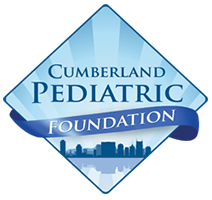From the IAC:
Leading professional societies, CDC, and IAC unite to release national call-to-action emphasizing the importance of second dose of MCV4 vaccine
The American Academy of Family Physicians (AAFP), American Academy of Pediatrics (AAP), American College Health Association (ACHA), Society for Adolescent Health and Medicine (SAHM), Centers for Disease Control and Prevention (CDC), and Immunization Action Coalition (IAC) have issued a joint “Dear Colleague” letter, urging health care professionals to strongly recommend and administer the second (booster) dose of meningococcal ACWY vaccine (MenACWY or MCV4) at age 16.
According to CDC, the meningococcal meningitis booster vaccination rate is an estimated 28.5% for eligible teens, compared to 79.3% for the primary dose. Despite CDC recommendations for a booster dose at age 16, after an initial vaccination at age 11 or 12, fewer than 30% of 17-year-olds have received the second vaccination needed to enhance protection against meningococcal meningitis caused by serogroups A, C, W, and Y. The “Dear Colleague” letter supports a national call-to-action for health care professionals to improve this alarming statistic.
CDC strongly recommends a booster dose at age 16 because protection wanes in most teens within five years after the primary vaccination. By vaccinating fewer than 1 in 3 eligible teens, we are leaving millions of young adults without the protection they need against potentially deadly and crippling meningococcal disease. Meningococcal meningitis has a 10–15% fatality rate and cases have occurred in which an otherwise healthy young person contracts the illness, becomes severely sick, and dies in as few as 24 hours after the first symptoms appear.
The “Dear Colleague” letter includes a statement from Anne Schuchat, MD, principal deputy director of CDC, who notes, “A clinician’s endorsement of immunization has long been recognized as a key factor in improving immunization rates.”
To help health care professionals in their efforts to recommend meningococcal meningitis vaccine and improve immunization rates, IAC has developed several resources that are available on its website at www.immunize.org/meningococcal. In addition, health care professionals can visit www.Give2MCV4.org to download free educational materials and tools, including fact sheets, talking points, an overview of adolescent immunization recommendations, Q&As, and other useful resources.
The joint “Dear Colleague” letter serves as a rallying cry for all health care providers to assure your adolescent patients are adequately protected. Remember—You’re not done if you give just one! Give 2 doses to strengthen protection.
Related Links
“Dear Colleague” letter
- “Dear Colleague” letter supporting improved rates for second dose of MCV4 vaccine
- Press Release announcing publication of “Dear Colleague” letter (November 11, 2015)
Meningococcal resources from Give2MCV4 project
- www.give2mcv4.org website
- MCV4: You’re Not Done If You Give Just One; Give 2 Doses to Strengthen Protection—Fact sheet and call to action
- Recommending MCV4: What to Say and How to Say It
- Vaccinate Adolescents: Think 1–2–3—Overview of adolescent immunization recommendations, including Tdap, MCV4, HPV, and annual influenza vaccines
- Top 10 Ways to Improve Adolescent Immunization Rates
Meningococcal Resources from IAC
- Meningococcal Disease—Collection of resources for teen patients and their parents, including websites, brochures, personal stories, videos, photos, and more
- Meningococcal: Questions and Answers—Information about the Disease and Vaccines
Meningococcal Resources from CDC
- Meningococcal Vaccine for Preteens and Teens—FAQs about meningococcal vaccination (for patients and their parents)
- National, Regional, State, and Selected Local Area Vaccination Coverage Among Adolescents Aged 13–17 Years—United States, 2014—2014 NIS-Teen data
